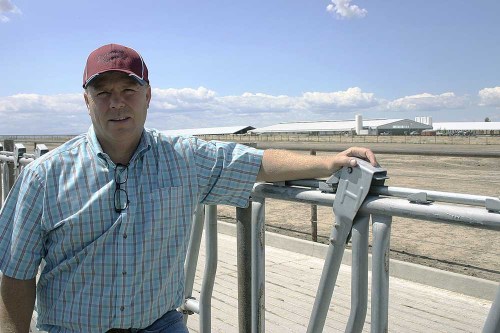Feds protest law firm’s $3.8 million bill in Easterday bankruptcy
Published 11:00 am Tuesday, July 27, 2021
YAKIMA — The U.S. Department of Justice has objected to a $3.8 million legal bill submitted by a Los Angeles law firm overseeing the liquidation of the bankrupt Easterday ranches and farms in the Columbia Basin.
The bill, with others to follow, covers work that lawyers with Pachulski, Stang, Ziehl and Jones did between Feb. 1 and May 31. Hourly rates averaged $1,053, with one attorney charging $1,695 an hour, according to court records.
The rates far exceed what local lawyers involved in the case are seeking and are substantially higher than fees attorneys recently collected in a more complicated bankruptcy case in Eastern Washington, according to Assistant U.S. Trustee Gary Dyer, the government watchdog in the bankruptcy proceeding.
The L.A. firm’s bill, submitted this month to U.S. Bankruptcy Judge Whitman Holt in Yakima, fails to justify the fees, Dyer stated in an objection filed Friday, July 23.
The firm vaguely described its services, had too many nonparticipating lawyers attend court hearings and over-billed by miscalculating hours, Dyer claimed.
He asked Holt to reduce the fees and perhaps withhold them until the L.A. firm provides fuller descriptions of its work.
Efforts to reach the firm’s lead attorney on the case, Richard Pachulski, were unsuccessful.
The firm specializes in bankruptcies and was hired by new Easterday directors shortly after Cody Easterday resigned as head of Easterday Ranches and Easterday Farms.
Cody Easterday, 50, later pleaded guilty to defrauding Tyson Fresh Meats and another company of $244 million by billing them for buying and feeding cattle that didn’t exist. He agreed to pay restitution and is scheduled to be sentenced Oct. 5 on one count of wire fraud. He faces up to 20 years in prison.
Separate from restitution in the criminal case, the Easterday companies — owned by Cody Easterday, his wife and mother — owe millions of dollars to creditors.
Farmland Reserve Inc., owned by the Church of Jesus Christ of Latter-day Saints, will buy several Easterday farms for $209 million, but the money has to be allocated.
The Pachulski firm was one of three law firms involved in the bankruptcy proceedings that submitted a first round of legal bills this month.
In a court filing, Pachulski defended its rates as reasonable, saying its lawyers overcame objections and organized an auction that maximized the value of the Easterday properties for creditors.
Dyer unfavorably compared hourly rates sought by Pachulski to other attorneys’ fees.
Senior members of a law firm that restructured Astria Health, a Yakima County health-care provider, billed $800 an hour, Dyer noted. Liquidating farm properties will be simpler, according to Dyer.
Two Seattle firms also are working on the Easterday bankruptcy. The lead attorney for Davis Wright Tremaine charged $800 an hour, while the lead attorney for Bush Kornfeld billed $450 an hour.
By contrast, Isaac Pachulski presented an hourly rate of $1,695. He worked on the case for 1.6 hours, adding $2,712 to the bill.
His brother, Richard Pachulski, reported working 224.7 hours at $1,592 per hour for a total of $358,396.
Hourly rates charged by firm attorneys were at least $695 an hour.
Besides Isaac and Richard Pachulski, hourly rates for 11 other attorneys in the L.A. firm exceeded $1,000 an hour, ranging from $1,395 to $1,025, according to court records. One attorney billed $538 after spending less than a half hour on the case.
Some lawyers described their activities as “attention to” or “work on” the case.
“We requested amplification of these entries … to understand what was actually being done,” Dyer stated in his brief.
“(The firm’s) response was that the entries were litigation related and they were shielding strategy information. When further pressed for amplification, (the firm) replied it was ‘impractical,’” Dyer stated.
Five lawyers submitted bills for attending telephonic court hearings in which they did not participate, according to Dyer. “The reasons for the attendance of numerous attorneys is simply not explained or supported in the application,” he stated.
Dyer reported finding at least three cases in which billed hours were apparently inflated by computing errors, resulting in an over-billing of $2,042.






